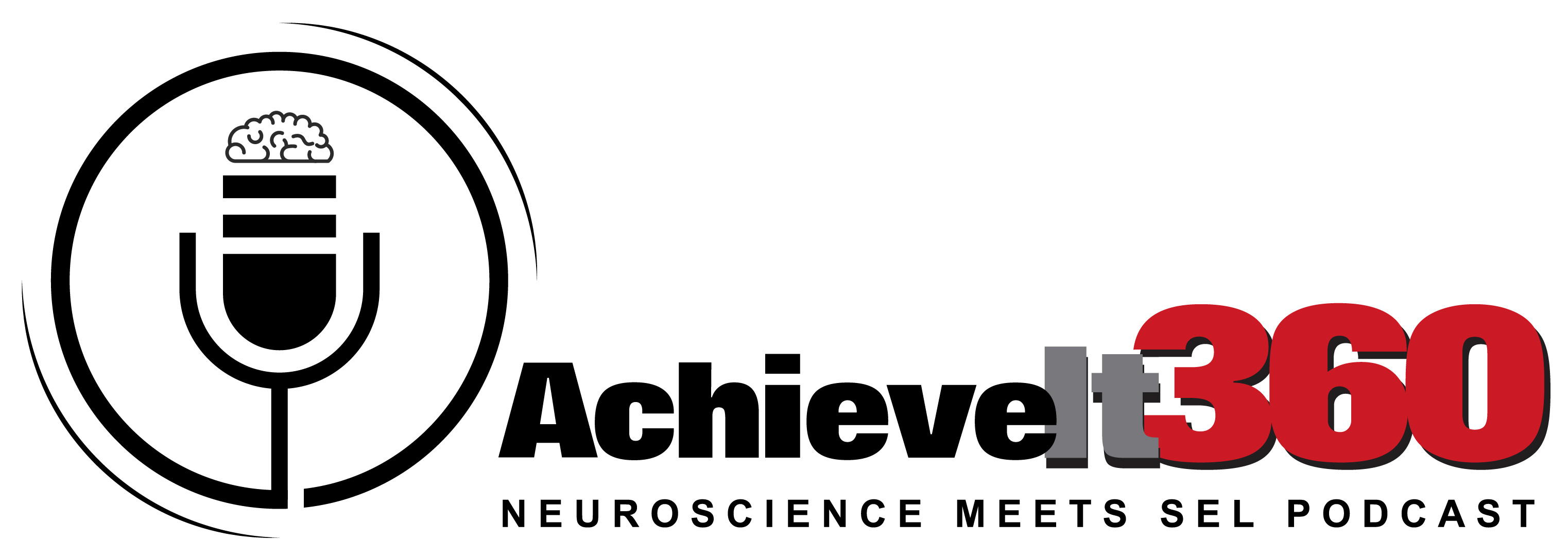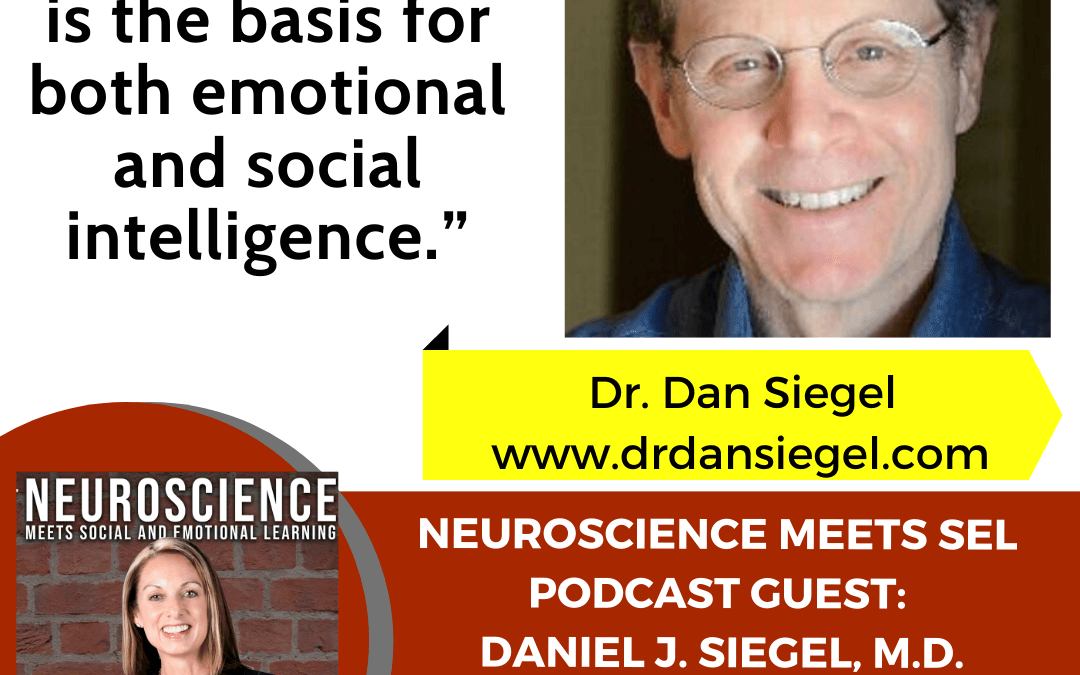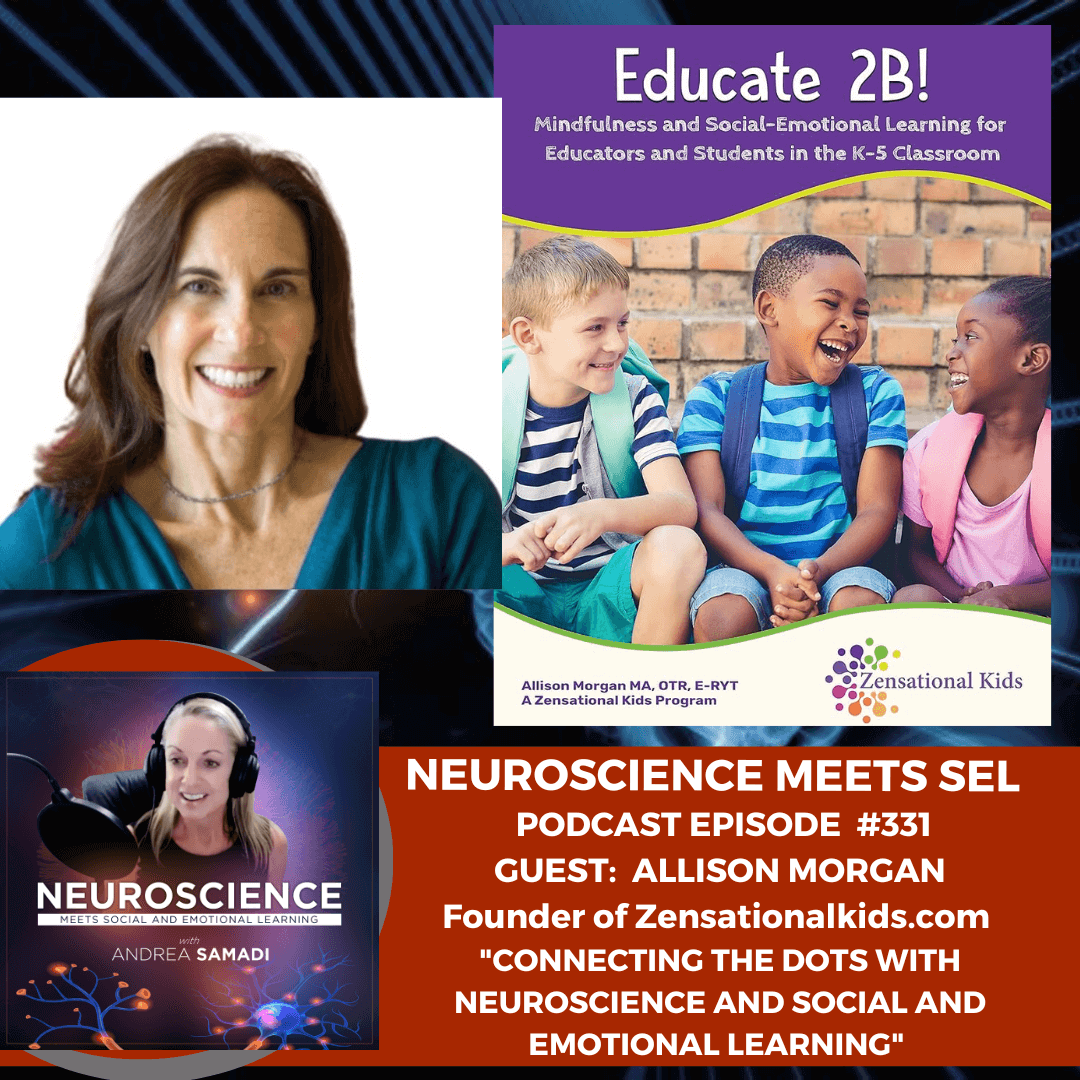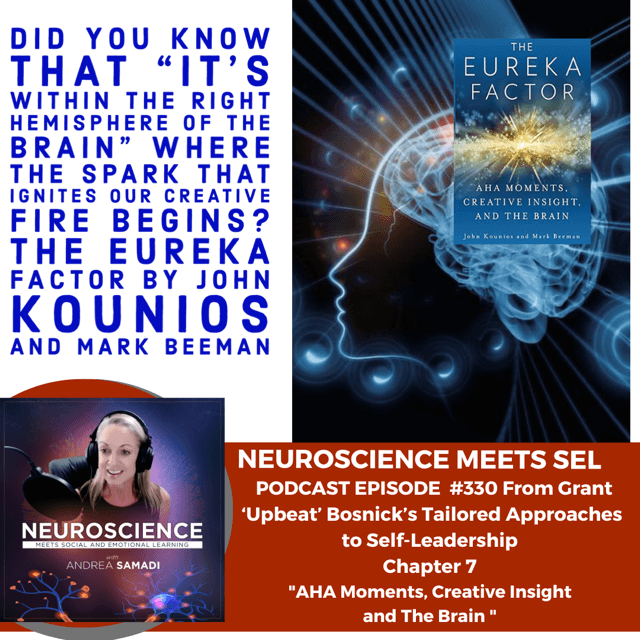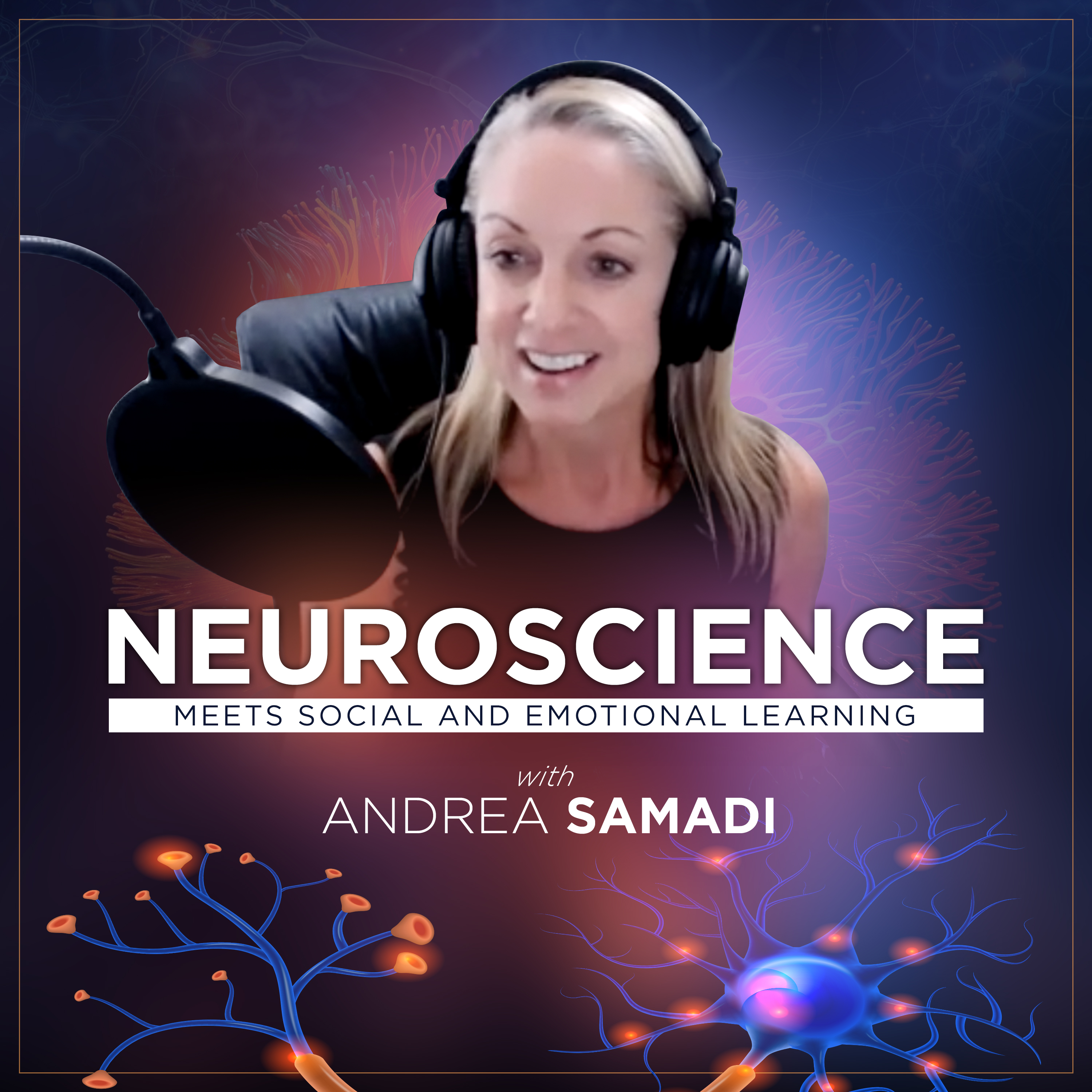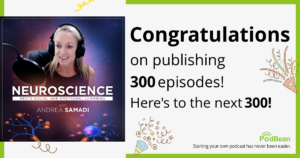Welcome to the “Neuroscience Meets SEL” podcast, my name is Andrea Samadi, a former educator who has been fascinated with understanding the science behind high performance strategies in schools, sports and the workplace for the past 20 years. This episode is available on YouTube and we highly recommend watching the visuals that go along with this interview for a more immersive experience.
This is episode #28 with Dr. Dan Siegel, a clinical professor of psychiatry at the UCLA School of Medicine and executive director of the Mindsight Institute where you can find his courses, workshops, books and tools to help anyone understand and apply what can sometimes be complicated scientific concepts and make them easy to understand and applicable to our daily lives. He has dozen books the last time I counted with his most recent parenting book with Dr. Tina Payne called The Power of Showing Up: How Parental Presence Shapes Who our Kids Become and How Their Brains Get Wired[i] coming out Jan. 7th, 2020. Be sure to pre-order your copy as it has already hit the top 20 books in cognitive neuroscience, child development and neuropsychology. Also, he is working on the 3rd edition of his book The Developing Mind.
Welcome Dan!
Dr. Siegel, I can personally say that I’m a more mindful[ii] parent, more aware[iii] of myself and others, have learned some no-drama discipline[iv] strategies, feel prepared for when my 2 girls reach their teenage years[v], with the reassurance that I don’t have to be perfect, and that I can repair relationships when my buttons have been pushed—all from reading your books the past few years. It’s such an honor to have you here—your influence is significant with the thousands of people around the globe you’ve been helping with your books, mnemonics to remember your strategies, and tools like your Wheel of Awareness Meditation. Thank you for being so accessible so we can take a deeper dive into some of the important concepts of your work.
Q1: Dr. Siegel, before I get into the questions I have for you, I wanted to ask what led you to write all of these books and create tools to help our next generation become more aware and connected to each other?
Q2: I know we can’t train the next generation of students for the old world; we must do things differently. On our podcast we have been speaking to leaders about the emergence of social and emotional learning skills in our schools and emotional intelligence training programs in the workplace (with people like Casel’s Clark McKown on measuring SEL to Marc Brackett and the importance of Emotional Intelligence and recognizing and naming our feelings. I know you have been working with the Blue School[vi] in New York City. What skills do you think have been missing in our schools and how do we bring these missing skills back for our next generation of students so that we can prepare them for success in the workplace? (3Rs and what else is missing?)
Q3: When I was in my late 20s I started to study the mind with a motivational speaker and learned some strategies that really helped me as an adult related to thinking positively, having a good attitude, awareness, you know those skills we used to call “soft skills” but 20 years ago, there just wasn’t the research behind SEL and mindfulness. Then I heard you mention that when you began surveying mental health professionals around the world who should know about the mind that “95% of them had never even been given a lecture on the mind, and probably couldn’t even tell you what the definition of the mind was”[vii] ) so you wondered how can we expect to develop it, without this understanding and explore the concept of the mind in your book, Mindsight: The New Science of Personal Transformation[viii] where you prove that you can define what a healthy mind is, not just describe it.
In your book Mindsight, you say that “Mindsight is the potent skill that is the basis for both emotional and social intelligence.” What is Mindsight? What does the research tell us about our ability to change the structure and function of our brain by using this “Mindsight” and how can this potent skill can set up our next generation for success? How are you using “Mindsight” at the Blue School[ix] is NYC? What are some other ways that Mindsight could be used in schools, homes the workplace or any examples you’ve seen in the field of medicine/health?
Q4: In preparation for this interview, I did a podcast (episode #23) on “Understanding the Difference Between the Mind and the Brain”[x] and this episode rose to the top of our episodes, showing me that listeners are really interested in this topic. Can we look at your definition of mind as “an embodied and relational process—since it’s in the body and it’s in our relationships with one another—that regulates the flow of energy and information”[xi] and can you explain why relationships are so important for our well-being health, and an integrated brain as you describe it?
Once we know what the mind is, then how does the mind differ from the brain and what about the fact we have a brain in our gut, not just our head?
Q5: We know that in order to have well students in our classrooms, we need well teachers, just as to have well children in our homes, the parent’s mindset matters. We are coming to grips here with what “the mind” is but we still have a society that struggles with health. Can you explain the best way that we as adults can stay on top of our health and well-being so that we can avoid burn-out and also keeping in mind the research you said has come out of Harvard and McGill University with Martin Teitcher[xii] and Michael Meaney[xiii] on epigenetics and how the stress felt by our grandparents can be passed on and impact our lives? How can we take this new research and use it in such a way that we prevent more stress in our lives and our children’s lives and our student’s lives to create an integrated brain versus a non-integrated brain of chaos or rigidity?
Q6: I have been practicing your Wheel of Awareness meditation[xiv] for the past 2 months while I have been preparing to speak with you. I actually downloaded it from your website in 2015 but didn’t make this a part of my daily routine until recently. I’ve noticed a huge difference in my own thinking process since incorporating this practice. Can you explain why this reflective meditation is different from using let’s say a relaxation app like Calm.com or just listening to peaceful music? What is happening to our brain as we focus inwardly on the four parts of this wheel? What are the outcomes are you seeing of this practice on society?
Q7: Is there anything important that you think I have missed with my questions today to give listeners some tips on how they can be more aware, practice using Mindsight and find a deeper meaning and connection and purpose in this world?
Thank you so much Dr. Siegel for coming on the show to dive deeper into your work. I really could talk to you all day, but know I’ve got to let you go. For those who would like to learn more about Dr. Siegel you can go to www.drdansiegel.com (where he has a ton of tools, books and resources that you can use immediately like the Wheel of Awareness Meditation) or find you on Linkedin (Daniel Siegel), Twitter @DrDanSiegel Instagram @drdansiegel and Facebook. He has a new book coming out The Power of Showing Up[xv] in Jan 2020 with Dr. Tina Bryson that I mentioned in the beginning that is already hitting the TOP 20 books before its release! Thank you again for all you are doing to promote well-being and health in the world. You are a true difference maker and it’s been such a pleasure to have this opportunity to speak with you.
BIO: Daniel J. Siegel received his medical degree from Harvard University and completed his postgraduate medical education at UCLA with training in pediatrics and child, adolescent and adult psychiatry. He served as a National Institute of Mental Health Research Fellow at UCLA, studying family interactions with an emphasis on how attachment experiences influence emotions and behavior. An award-winning educator, he is a Distinguished Fellow of the American Psychiatric Association and recipient of several honorary fellowships. Dr. Siegel is also the Executive Director of the Mindsight Institute, an educational organization, which offers online learning and in-person seminars that focus on how the development of mindsight in individuals, families and communities can be enhanced by examining the interface of human relationships and basic biological processes. His psychotherapy practice includes children, adolescents, adults, couples, and families. He serves as the Medical Director of the LifeSpan Learning Institute and on the Advisory Board of the Blue School in New York City, which has built its curriculum around Dr. Siegel’s Mindsight approach.
Dr. Siegel’s unique ability to make complicated scientific concepts exciting and accessible has led him to be invited to address diverse local, national and international groups including mental health professionals, neuroscientists, corporate leaders, educators, parents, public administrators, healthcare providers, policymakers, mediators, judges, and clergy. I was referred to Dr. Siegel’s work when a neuroscience researcher was helping me to add brain-based concepts to my work and I quickly learned the 3 parts of the brain and their functions and was able to teach others using his “Hand Model of the Brain.” [xvi]
WHEEL OF AWARENESS RESOURCE:
https://www.drdansiegel.com/resources/wheel_of_awareness/
REFERENCES:
[i] The Power of Showing Up by Daniel Siegel and Tina Payne Bryson (Ballantine Books, January 7, 2020) https://www.amazon.com/gp/product/1524797715/ref=dbs_a_def_rwt_bibl_vppi_i6
[ii] Mind: A Journey to the Heart of Being Human by Daniel J Siegel October 18, 2016 (W.W Norton and Company) https://www.amazon.com/Mind-Journey-Norton-Interpersonal-Neurobiology-ebook/dp/B01CKZM39I/ref=pd_sim_351_2/144-0582078-3016428?_encoding=UTF8&pd_rd_i=B01CKZM39I&pd_rd_r=524a4609-ef8e-4405-b86e-826c0dfe4756&pd_rd_w=lkyDh&pd_rd_wg=Wj12A&pf_rd_p=5abf8658-0b5f-405c-b880-a6d1b558d4ea&pf_rd_r=GC135MTVN7YQ2YKQA8S0&psc=1&refRID=GC135MTVN7YQ2YKQA8S0
[iii] Aware: The Science and Practice of Presence by Daniel J Siegel August 21, 2018 (Penguin Group, USA) https://www.amazon.com/Aware-Presence-Groundbreaking-Awareness-Meditation/dp/B07FDGTCRM/ref=sr_1_1?keywords=aware+dan+siegel&qid=1572802485&sr=8-1
[iv] No-Drama Discipline: The Whole Brain Way to Calm the Chaos and Nurture Your Child’s Developing Mind https://www.amazon.com/No-Drama-Discipline-Whole-Brain-Nurture-Developing-ebook/dp/B00JCS4NMC/ref=pd_sim_351_49?_encoding=UTF8&pd_rd_i=B00JCS4NMC&pd_rd_r=083bcdfa-8b36-4f44-8b03-ba1253cda3f2&pd_rd_w=MHy7B&pd_rd_wg=mO3Nq&pf_rd_p=5abf8658-0b5f-405c-b880-a6d1b558d4ea&pf_rd_r=8MRRV2G8KZTD8VCED844&psc=1&refRID=8MRRV2G8KZTD8VCED844
[v] Brainstorm: The Power and Purpose of the Teenage Brain Daniel J Siegel January 7, 2014 (Penguin Group, USA) https://www.amazon.com/Brainstorm-Power-Purpose-Teenage-Brain-ebook/dp/B00C5R8378/ref=sr_1_1?keywords=brainstorm&qid=1572803186&s=digital-text&sr=1-1
[vi] https://www.blueschool.org/
[vii] Mindsight: The New Science of Transformation Dr. Dan Siegel https://www.drdansiegel.com/about/mindsight/
[viii] Mindsight: The New Science of Transformation Dr. Dan Siegel https://www.drdansiegel.com/about/mindsight/
[ix] https://www.blueschool.org/
[x] “Neuroscience Meets SEL” Podcast #23 Understanding the Difference Between Your Brain and Mind for Increased Results https://andreasamadi.podbean.com/e/understanding-your-brain-and-mind-for-increased-results/
[xi] Dr. Dan Siegel Defines The Mind Published Feb. 11, 2010 on YouTube https://www.youtube.com/watch?v=MEdq04xbHAs
[xii] https://www.mcleanhospital.org/profile/martin-teicher
[xiii] https://en.wikipedia.org/wiki/Michael_Meaney
[xiv] https://www.drdansiegel.com/resources/wheel_of_awareness/
[xv] The Power of Showing Up by Daniel Siegel and Tina Payne Bryson (Ballantine Books, January 7, 2020) https://www.amazon.com/gp/product/1524797715/ref=dbs_a_def_rwt_bibl_vppi_i6
[xvi] Dr. Dan Siegel’s Hand Model of the Brain Published on YouTube August 9th, 2017 https://www.youtube.com/watch?v=f-m2YcdMdFw
Podcast: Play in new window | Download
Subscribe: Apple Podcasts | RSS
